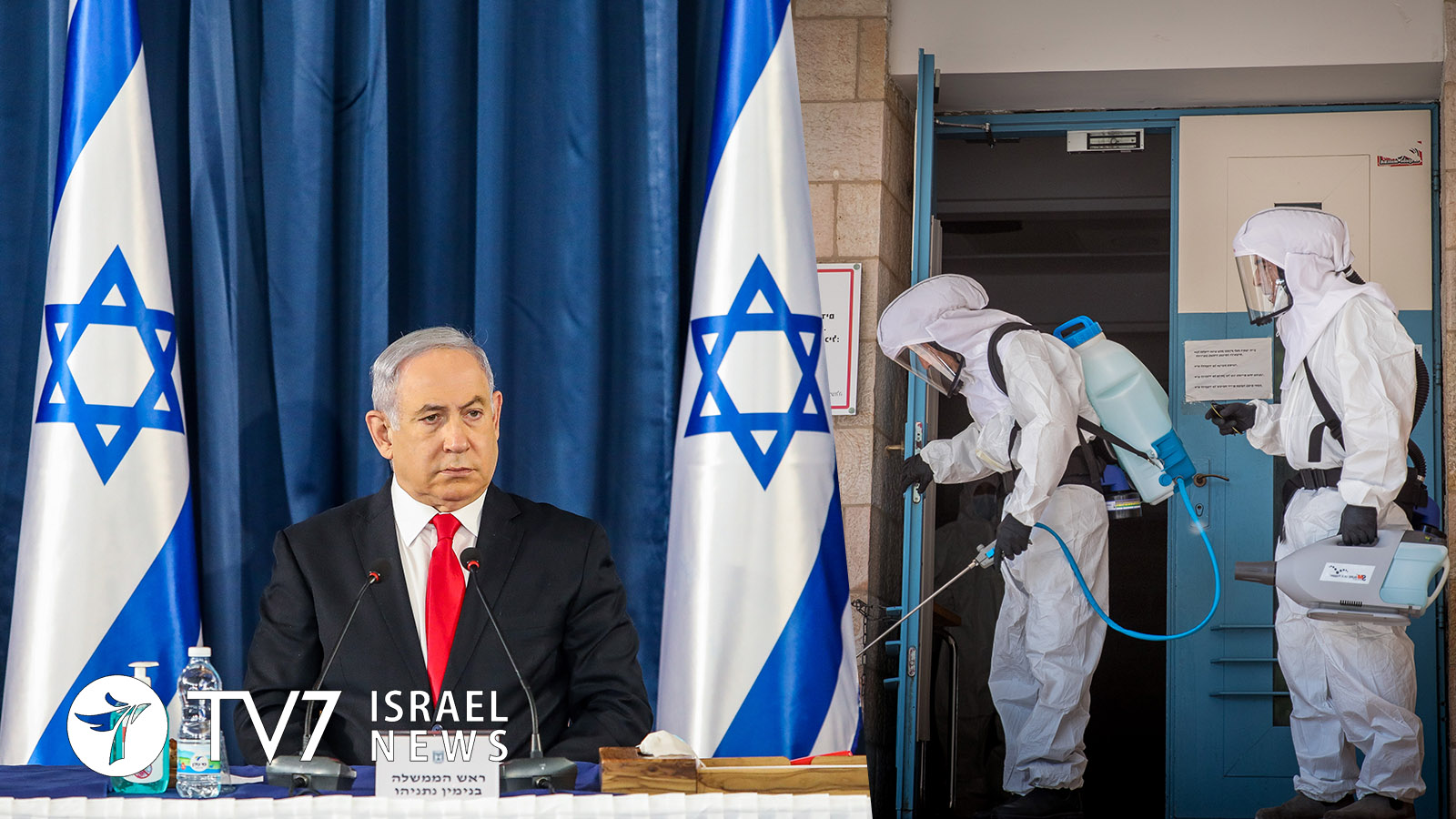An evident resurgence of the coronavirus throughout Israel continues to keep leaders occupied.
While the upward trend of newly confirmed COVID-19 cases has yet to reach the level witnessed during the so-called ‘first wave’ of the pandemic, Jerusalem’s special coronavirus cabinet, tasked with combating further spread of the disease, is undertaking every effort to shake increasingly complacent behavior by the country’s population particularly when in public.
An emergency meeting by senior Israeli officials chaired by Premier Benjamin Netanyahu decided to empower authorities’ enforcement of government measures such as the wearing of masks, observance of limitations on gatherings and standards set for businesses and commercial centers; as well as the mandated quarantine of patients confirmed as carriers of the disease and those with whom they have been in contact.
During a state memorial ceremony for casualties of the 1948 confrontation between the newly-formed IDF and a pre-state militia known as the “Altalena Affair,” Netanyahu utilized the occasion to reiterate his call on the Israeli public to exercise proper hygiene and responsibility or face a possible the possible reimposition of restrictions. The Premier emphasized a continuation of extensive efforts toward further repair of the economy, though; in lieu of drastic measures undertaken during the so-called first wave which included a nationwide lockdown.
“In the midst of a global crisis, I emphasized countless times that the fight against the virus required mutual responsibility, trust and brotherhood,” said Netanyahu, stressing that, “ We are still dependent on this ‘mutual responsibility’ because the pandemic is here – and it is again raising its head. It requires every one of us to follow the instructions of the Health Ministry – as we are doing here today – and it could be that soon we will have to take additional steps – in addition to the steps we are taking to open the economy, put people back to work and help the self-employed.”
Prime Minister Benjamin Netanyahu further highlighted the need for unity as the nation confronts numerous challenges, including in all that pertains to its aspiration of asserting sovereignty over parts of the West Bank. “The challenges we face, vis-à-vis Defense; Economy and Health; in restoring the damage of the corona aftermath; in asserting Israeli law over (our) birthlands in Judea and Samaria; these challenges demand standing together as far as possible,” he said.
The last remark may have been directed at Netanyahu’s political partner, Alternate Premier and Defense Minister Benny Gantz. It has been revealed that the two leaders just held a meeting, at which U.S. Ambassador to Israel David Friedman, Foreign Minister Gabi Ashkenazi and Parliament Speaker Yariv Levin were also present. While few details of the talks were disclosed, it has been revealed that Washington is not hindering Jerusalem’s annexation quest.
A senior source explained to TV7 that the White House position on the matter have been clear to Israel from the moment President Donald Trump unveiled his ‘vision for peace;’ while “internal Israeli divisions are currently impeding the plan’s execution.” According to the source, who asked to remain anonymous, Netanyahu is eager to maximize the scope of the territory in question, whereas Gantz is determined to implement a more cautious approach. The Defense Minister’s apparent reluctance over the consequences of Israeli is linked to critical relations with Jordan, which Israel’s defense establishment has outspokenly determined as vital for the national security interests of the Jewish State.
In light of these diplomatic concerns, Gantz is believed to be pushing for a ‘partial annexation’ that would likely extend sovereignty over major settlement blocs in the Biblical districts of Judea and Samaria but stop short of the Jordan Valley.
Neither the Israeli Prime Minister’s nor the Alternate Premier’s bureaus were willing to confirm or deny the contents of this report.
